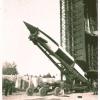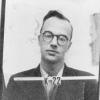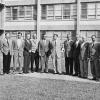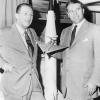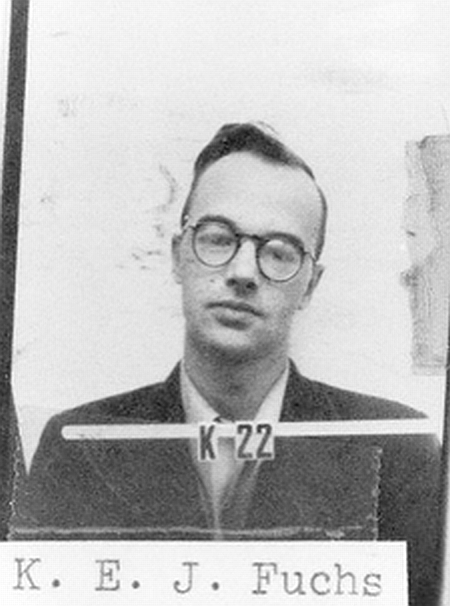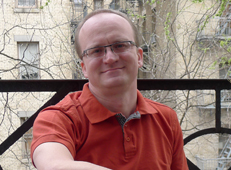Postponed reparation comes with bonus
The German physicist Klaus Fuchs (1911–1988) followed a very different track from the Operation Paperclip engineers who went to the US after the war.
Fuchs' knowledge was greatly enhanced by experience gained in British and American laboratories. Fuchs had fled Nazi Germany in the 1930s and settled in Great Britain. During the Second World War he worked on both the British and American atomic bomb projects, carrying out key theoretical calculations. In 1950, he was convicted of passing UK and US atom bomb secrets to the Soviet Union.
Following his conviction, he was sentenced to fourteen years in prison and stripped of his UK citizenship. He was released in 1959, and then settled in Dresden, East Germany, where he resumed his work in nuclear research on the far side of the "Iron Curtain."
 Previous Story
Next Story
Previous Story
Next Story
How to cite this page
Slawomir Lotysz, 'Postponed reparation comes with bonus', Inventing Europe, http://www.inventingeurope.eu/knowledge/postponed-reparation-comes-with-bonus
Sources
- Williams, Robert Chadwell. Klaus Fuchs, Atom Spy. Cambridge, USA: Harvard University Press, 1987.
- Richelson, Jeffrey. A Century of Spies: Intelligence in the Twentieth Century. New York: Oxford University Press, 1995.





